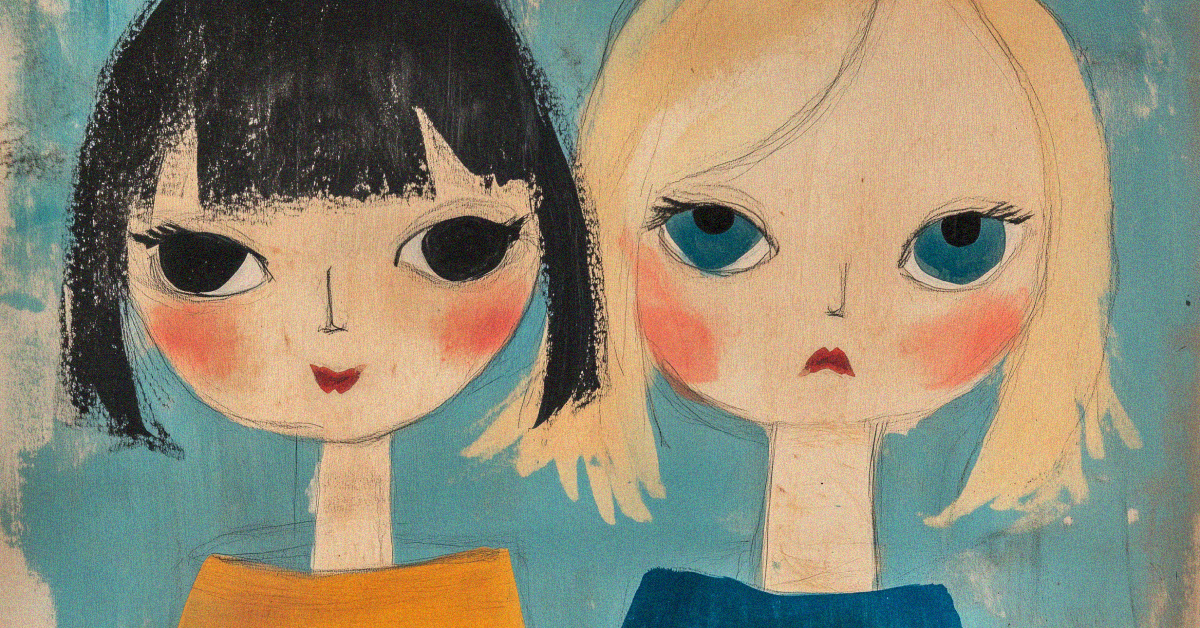There’s a product launch, two opposing workflows, and one outcome that should’ve been entirely predictable. No, this isn’t your average post-mortem—it’s an uncomfortably relevant story about perfectionism, written many years ago by Bulgarian author Georgi Raychev and deviously told as an innocent tale for kids.
It goes like this:
A widow had two twin daughters with two peculiar names. They were called Cindil-Pindil and Jasta-Prasta. The two girls looked nothing alike. Jasta-Prasta was short, plump, with black hair and black eyes; Cindil-Pindil was slim, tall, with blonde hair and cornflower-blue eyes. Jasta-Prasta was talkative, joyful, always smiling, while Cindil-Pindil was quiet and thoughtful. Even in their work, the two girls were completely different. Whatever Mother asked Jasta-Prasta to do, she would immediately get to work. True, in her haste she might break something or spill something, but the work would always get done on time. Meanwhile, Cindil-Pindil would stand frozen before tasks, looking at them pitifully, afraid to touch anything for fear of ruining it.
Eventually, the girls came of age, and one day, their mother called them. She gave Jasta-Prasta a large piece of cloth, scissors, needle, and thread. She then gave the same to Cindil-Pindil and said: “Daughters, you’re all grown up now. It’s a shame for me to keep sewing your clothes; besides, my eyesight is failing. Here’s fabric, here are scissors and thread. Get to work and sew yourselves new dresses for the Easter celebrations.”
Jasta-Prasta didn’t need to be told twice. She grabbed the fabric and got to work. She cut, sewed and unpicked, then cut and sewed again, and quickly, the dress was ready. But Cindil-Pindil just stood before her piece of fabric, afraid to touch it for fear of making a mistake. And when she finally began working, she measured every stitch, counting twenty times, and her dress was never finished.
Then the bells of St. George’s Day began to ring. The holiday had arrived. The dance started, and Jasta-Prasta, putting on her new dress, rushed to join it. True, her skirt hung crooked, one sleeve was shorter than the other, but who would notice! Jasta-Prasta joined the dance and began stepping lightly. Meanwhile, Cindil-Pindil had no dress to wear. She stayed at home, behind the fence, looking sadly at the dance, while large pearl-like tears fell from her blue eyes.
Since then, they say, the world has always been this way: Cindil-Pindil behind the fence, and Jasta-Prasta at the dance.
If you’re feeling personally attacked right now, well, you should. That’s the Balkans for you, turning bedtime stories into existential crises. Molya, you’re welcome.
Have you ever been asked in a job interview what your greatest weakness was? And have you then googled how you were supposed to answer? The advice is essentially all the same, and it’s fair enough: say you’re ‘your own worst critic’ or that you’re ‘a little bit too detail-obsessed for your own good.’ Pause for effect, smile, then show how this so-called flaw reflects your unshakeable devotion to quality work, because who wouldn’t want someone who’s thorough? Sure, we’re self-aware enough: the business demands we ship faster and faster. Technically speaking, standing for excellence when everyone else races to market is a weakness, but what a noble one! Or so we’ve managed to convince ourselves, holding onto it like it’s somehow precious, because “perfectionist” is a label infinitely prettier than “afraid of being judged.”
But what if they were to ask, point-blank, “Are you a Jasta-Prasta or a Cindil-Pindil?”
Well.
Should we stick to the lofty tale of our own virtue, we suddenly become the person shedding pearl-like tears over their sorry pile of almost-perfect work that never sees the light of day, and somehow, this doesn’t sound quite as dignified anymore. Or even sensible, for that matter, because how is suggesting we’d never deliver in any way sensible? And if we’re honest about how our minds instinctively sided with the girl with the crooked skirt, living her best life, well, then we’re actively disowning all the claims we’ve been so proud to make, since apparently, beneath our talk of standards, we secretly admire the audacity to put imperfect work out there. Or worse yet, we somehow hold ourselves back while cheering for those who let go, which makes absolutely no sense at all.
Of course, life’s much more complicated than any fairytale. No one would seriously ask that question (thankfully so, because I’m at capacity for interviewers’ cleverness), and in reality, none of us can fully be one twin or the other. Ultimately, we all deliver—we launch, we ship, we meet the deadlines—even those of us who’ve counted every stitch twenty times. Our work does make it into the world, which means we do, eventually, break out of the standstill, but honestly, how often is that because we’ve truly hit some objective mark of excellence, and not simply because we’ve been pushed to move already?
Probably never, because that mark doesn’t exist. “Art is never finished, only abandoned.” Creative work doesn’t end on its own. Choices create more choices; changes lead to more changes; every final version could always be revised. Left unchecked, the cycle could indeed run endlessly, not because it needs to, but because we let it. And since creativity is also a business, the industry has designed these full-scale systems to kindly short-circuit it for us (because when perfectionists finally deliver, they often do so exceptionally well). Product development calls it agile, lean, adaptive—all nice names for essentially forcing fussy but otherwise brilliant Cindil-Pindils into some much needed Jasta-Prastasness, inasmuch as brilliance doesn’t happen behind the fence. The best results out there have been seen, tested, and most certainly, iterated, and if our perfectionism were really about the output, we’d be all for it. But is it, really, when it turns the natural process of growth into a perceived attack on our self-worth?
There’s a word for making work serve you instead of its purpose.
Unprofessional.
Which is what perfectionism fundamentally is. Cindil-Pindil had one job: take the fabric, make a dress. Nothing to prove; that was all. But she failed at the most basic level—not because of her skill, vision, or execution, none of which even had the chance to matter—she simply didn’t do the job, and that’s exactly what happens when perfectionism runs its natural course. And while the modern workplace would’ve stepped in before she flopped that spectacularly, isn’t it still weird that alleged professionals need to be reminded to act like such?
Yet somehow, in Bulgarian culture, calling someone a ‘Jasta-Prasta’ isn’t exactly flattering. It implies they work rather messily, carelessly, and without much regard for quality.
But are we really sure that’s the case?
Done before perfect doesn’t mean done without care. It simply means recognizing the moment when ‘good enough’ becomes good enough. For all we know, Jasta-Prasta’s MVP was fully functional and it fulfilled its role.
And the story never tells who declared the skirt crooked: the stakeholders at the dance, or the tormented perfectionist behind the fence. So, why is it that we automatically assume that simply getting things done means doing them poorly?
Oh wait.



